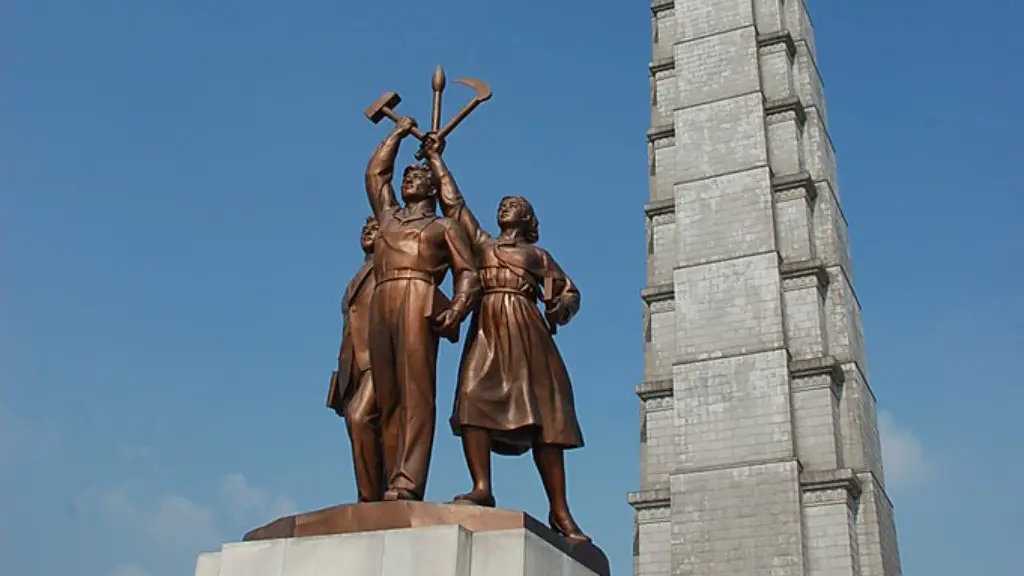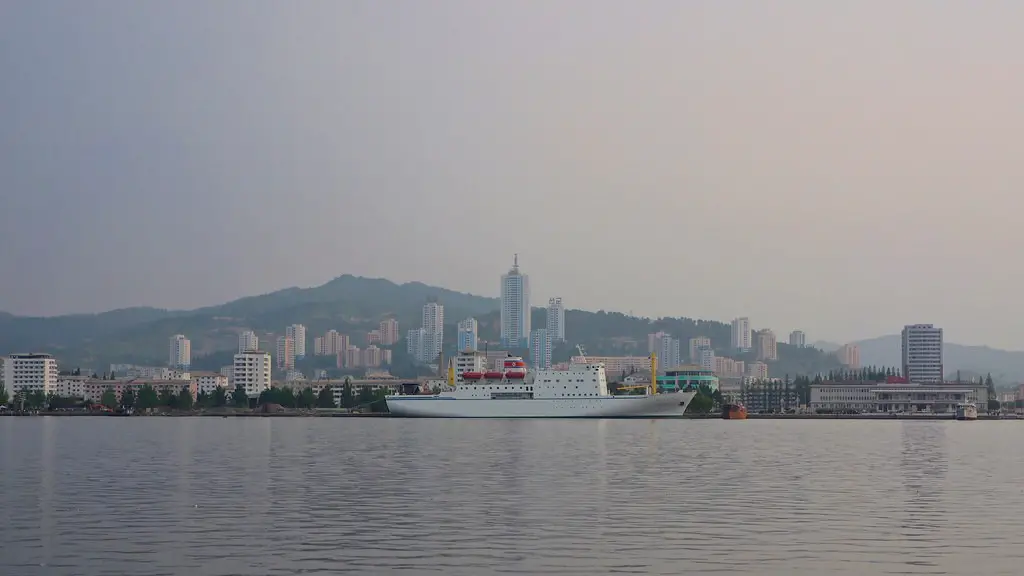Introduction
The question of whether North Korea has nuclear capabilities is one that carries immense gravity and is the source of much international anxiety. North Korea has long been advancing in its nuclear capabilities, and the country is now believed to have an arsenal of 20-60 nuclear weapons. Moreover, North Korea is known to have both plutonium and possibly uranium enriched for a nuclear capability, and there is speculation that the country is working on miniaturizing nuclear warheads for long-range delivery. Now that North Korea has demonstrated its nuclear capabilities, the world must decide how it will respond.
North Korea’s Pursuit of Nuclear Weapons
North Korea first expressed an interest in nuclear weapons in the late 1950s, and this became a priority for the government in the 1970s. Nuclear research and the development of nuclear capabilities were declared key national policies in April 1992, and in the years since then North Korea has continued to advance its nuclear weapons capabilities. Through its nuclear testing, North Korea has gone beyond simply having the capability to make a single nuclear weapon and has become capable of producing nuclear bombs. In 2006, North Korea conducted its first nuclear weapons test and followed this with three additional tests during the next decade. North Korea is now estimated to have enough fissile material to make 20 to 60 nuclear weapons.
North Korea’s Military Capabilities
These nuclear weapons are only part of North Korea’s expanding military capabilities. North Korea is believed to possess up to 15 medium-range ballistic missiles, with some of these capable of striking targets in Japan. Additionally, North Korea has developed an intercontinental ballistic missile (ICBM) with a range of up to 9,000 kilometers, which would enable a possible strike of the continental United States. While the exact status of North Korea’s ICBM program is unclear, it is believed that the country has been able to miniaturize nuclear warheads for use in missiles, thus increasing the range and capabilities of its nuclear weapons.
Implications of North Korea’s Nuclear Capabilities
The implications of North Korea’s nuclear capabilities are significant. North Korea has repeatedly used its nuclear capabilities as a point of leverage in negotiations with the United States and its allies, holding out the threat of a nuclear attack in order to secure concessions. This has had the effect of making North Korea a much more serious political player and a significant threat in an increasingly dangerous region. The United States and its allies have responded by increasing economic and military pressure on North Korea, but have so far been unable to stem the advance of North Korea’s nuclear program.
International Response to the North Korean Nuclear Threat
The international community has been severely concerned about North Korea’s pursuit of nuclear weapons and its increasingly belligerent behavior. In 2017, the United Nations Security Council passed a new round of sanctions which aimed to deprive North Korea of resources which were being used to finance its nuclear weapons program. However, attempts to use sanctions or negotiations to contain or eliminate North Korea’s nuclear capabilities have largely failed.
The Role of China in Mitigating the Threat of North Korean Nuclear Weapons
An important factor in the containment of North Korean nuclear capabilities has been the role of China. As North Korea’s closest ally, China has lobbied against economic sanctions on North Korea and has sought to engage in negotiations with North Korea in order to defuse tensions between the two countries. China has also sought to use its significant economic leverage to pressure North Korea into limiting its nuclear weapons capabilities, though this has not been successful thus far.
Military Preparedness
Given the seriousness of the North Korean threat, the United States and its allies have taken steps to increase their military preparedness and bolster deterrence against North Korea’s nuclear capabilities. The United States and South Korea have deployed additional military forces to the region and have conducted joint military exercises to simulate a response to a North Korean attack. Additionally, the United States has deployed its Terminal High Altitude Area Defense system (THAAD) in South Korea, which is designed to detect and intercept ballistic missiles.
The International Debate on North Korea’s Nuclear Capabilities
The debate over how to respond to North Korea’s nuclear capabilities has been fierce and divisive. The United States and its allies have generally called for increased pressure on North Korea, while China has argued for negotiations and a more conciliatory approach. North Korea has also shown signs of a willingness to negotiate, with the country engaging in talks with South Korea in 2018 and offering to suspend its nuclear program in exchange for the removal of US sanctions in 2019. However, at the same time, North Korea has continued to develop its nuclear capabilities, creating a source of ongoing tension in the region.
The Effect of Sanctions on North Korea
The United Nations has imposed severe economic sanctions on North Korea in an effort to curb the country’s nuclear ambitions. These sanctions have had a severe effect on the North Korean economy and have led to widespread suffering among the population. The sanctions have targeted key industries, including the export of coal and iron, and have limited North Korea’s access to the international financial system. Additionally, the sanctions have made it difficult for North Korea to import food, fuel, and other key commodities, leading to increased hunger and poverty in the country.
North Korea’s International Relations
Since the start of its nuclear program, North Korea has been increasingly isolated from the international community. While North Korea has re-engaged in some diplomatic efforts in recent years, the country continues to face widespread condemnation and criticism for its human rights abuses and its pursuit of nuclear capabilities. North Korea is regularly included on international lists of countries of concern, and its nuclear program continues to be a source of contention and tension between the United States and its allies and China.
The United States and North Korean Relations
The United States has a long and complicated history with North Korea. In the years since the Korean War, the two countries have been in a state of cold war, with the United States viewing North Korea as a dangerous and hostile state. However, the two countries have engaged in negotiations and dialogue in recent years, with the United States offering to open diplomatic relations in exchange for the suspension of North Korea’s nuclear program. President Donald Trump has sought to engage in direct negotiations with North Korea, leading to the signing of a joint statement between the two countries in 2018.
The Prospects for North Korea Denuclearization
Whether North Korea will ultimately denuclearize is still a matter of debate. North Korea has made some gestures towards denuclearization, such as dismantling parts of its nuclear test facility, but has stopped short of making any concrete commitments. There have been some indications that North Korea may be willing to accept denuclearization in exchange for certain commitments from the United States and its allies, such as the lifting of economic sanctions, but little progress has been made towards a comprehensive agreement.
The Impact of North Korea’s Nuclear and Missile Programs
North Korea’s nuclear and missile programs have had an immense impact on regional and global security. The development of these programs has increased the risk of conflict in the region and has made North Korea a major threat to stability and peace. The United Nations Security Council, as well as the United States and its allies, has responded by imposing economic sanctions and attempting to pressure North Korea into halting or reversing its nuclear and missile advances. However, the efforts so far have not been successful, and the future of North Korea’s nuclear and missile programs remains uncertain.



